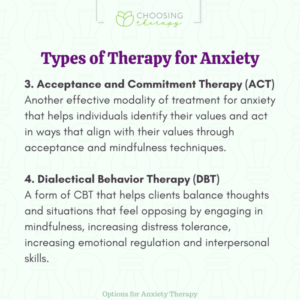
Welcome to the sneeze fest of the century, where we explore the wacky world of allergy relief! If you’ve ever found yourself in a pollen-induced sneeze-off or battling the dust bunnies under your bed, you’re in the right place. This lively journey through natural remedies and over-the-counter medications promises to tickle your funny bone while arming you with wisdom for combatting those pesky allergens.
From herbal potions that smell like an enchanted garden to the modern magic of antihistamines, we’ll dissect everything you need to know about allergy relief. Get ready for a wild ride through the pros and cons of various methods—because let’s be honest, navigating allergies is like playing dodgeball in a field of flowers!
Allergy Relief Techniques
Allergies can feel like an unwelcome guest that overstays its welcome—itchy eyes, sneezing, and that oh-so-pleasant congestion can turn a sunny day into a hay fever nightmare. Fortunately, there are a variety of techniques and remedies available to help you reclaim your enjoyment of life. From natural remedies that make you feel like a woodland healer to over-the-counter medications that pack a punch, let’s explore the options!
Natural Remedies for Allergy Relief
Natural remedies have been a go-to for many allergy sufferers, often providing a gentler approach to symptom management. These remedies can be effective and are frequently infused with the healing magic of Mother Nature herself. Here are some popular options:
- Local Honey: Taking a teaspoon of local honey daily can help your body build immunity to pollen. Just think of it as a sweet little shield against those pesky allergens!
- Saline Nasal Rinse: Using a saline solution to rinse your nasal passages can clear out irritants. It’s like giving your sinuses a mini spa day!
- Butterbur: This herb has shown promise in clinical studies for reducing allergy symptoms without the drowsiness. It’s the plant-based equivalent of a superhero cape!
- Quercetin: Found in apples and onions, this natural compound may act as a natural antihistamine. Just make sure your breath is minty fresh after consuming all those onions!
Effectiveness of Over-the-Counter Medications
Over-the-counter medications can be a quick way to tackle allergy symptoms head-on. Most of these medications feature active ingredients that can zap your symptoms faster than you can say “sneeze.” Common options include:
| Medication | Active Ingredient | Pros | Cons |
|---|---|---|---|
| Antihistamines (e.g., Benadryl) | Diphenhydramine | Fast relief, widely available | Causes drowsiness |
| Non-Drowsy Antihistamines (e.g., Zyrtec) | Cetirizine | Less drowsiness, long-lasting | May still cause mild drowsiness in some |
| Decongestants (e.g., Sudafed) | Pseudoephedrine | Effective for nasal congestion | Can raise blood pressure |
| Intranasal Corticosteroids (e.g., Flonase) | Fluticasone | Reduces inflammation | May take a few days for full effect |
“Finding the right allergy relief is like dating—sometimes it takes a few tries to discover what really works for you!”
Understanding these options allows allergy sufferers to tailor their approach to managing symptoms effectively. Whether you opt for the gentle touch of nature or the robust power of over-the-counter medications, relief is within reach—just make sure to consult with a healthcare professional to find the best method for your needs!
Health and Allergies

Allergies are like that unexpected guest at a party who overstays their welcome—disruptive and often unwelcome. They don’t just mess with our noses and skin; they can also throw a wrench into our overall health and well-being. Understanding the connection between allergies and health is crucial for managing symptoms and maintaining a balanced life.When you think of allergies, you might picture sneezing and itchy eyes, but there’s more lurking beneath the surface.
Allergies can impact mental well-being, often leading to increased anxiety levels. The constant battle with symptoms can create a cycle of stress that makes it hard to concentrate on daily tasks or enjoy life. Those late-night sniffles can easily morph into early-morning anxiety, leaving you feeling like you’re in a never-ending sneezy spiral of doom.
Impact of Allergies on Mental Well-Being
The connection between allergies and mental health can be subtle but significant. Allergies can affect sleep quality, which in turn can lead to irritability and anxiety. Research shows that people with chronic allergies may be more prone to developing mood disorders. The body’s immune response can lead to inflammation that affects brain function, making you feel foggy or fatigued, similar to feeling like you’ve just run a marathon…
in slow motion. Recognizing and addressing this link is vital for a holistic approach to health.To combat allergy symptoms and their mental toll, adopting certain lifestyle changes can be remarkably effective. Here’s a checklist of practical adjustments that can help you breathe easier and keep your mind clear:
Implementing these lifestyle changes can make a substantial difference in managing allergy symptoms:
- Stay Hydrated: Drinking plenty of water helps thin mucus and keeps your airways clear, making you feel less like a stuffed-up marshmallow.
- Keep Indoor Air Clean: Use HEPA filters and regularly change them to trap those pesky allergens that love to hang out in your home.
- Regular Exercise: Get moving! Exercise can boost your immune system and help combat the stress that allergies can cause.
- Limit Outdoor Exposure: On high pollen days, consider channeling your inner hermit and staying indoors; your nose will thank you.
- Mindfulness and Relaxation Techniques: Practices like yoga and meditation can help reduce anxiety and improve your response to allergies.
- Consult an Allergist: Regular check-ups can help tailor a treatment strategy that’s as unique as your allergies.
Alternative Therapies for Allergies

Picture this: you’re surrounded by blooming flowers, the sun is shining, and your nose suddenly decides to throw a sneeze party. Fear not, dear reader! Alternative therapies for allergies are here to rescue you from this symphony of sniffles. While traditional medications like antihistamines often take center stage, alternative approaches are gaining popularity for their holistic charm and unique benefits.Alternative therapies encompass a delightful bouquet of options, including acupuncture and aromatherapy, which aim to treat the root causes of allergies rather than just masking the symptoms.
These therapies invite you to explore new avenues for relief and can be particularly appealing for those seeking a more natural approach to health management. Let’s take a closer look at some popular methods.
Acupuncture and Aromatherapy
Acupuncture, the ancient practice involving fine needles and the strategic stimulation of specific points, may sound like a painful experience, but it’s quite the opposite! Many enthusiasts report that it feels more like a gentle hug from a friendly cactus. The theory behind acupuncture is rooted in balancing energy, or Qi, within the body to alleviate allergy symptoms.Aromatherapy, on the other hand, employs the power of essential oils to uplift your spirits and clear your airways.
Think of it as a spa day for your sinuses—lavender for relaxation, eucalyptus for decongestion, and peppermint for a fresh burst of energy. By integrating these scents into your daily routine, you may find a new weapon in your allergy arsenal.Both therapies offer benefits that may appeal to different preferences. While acupuncture can provide immediate relief and promote long-term healing, aromatherapy is a fantastic daily companion that fills your home with delightful fragrances while soothing your symptoms.
“After just a few acupuncture sessions, I felt like I could finally breathe again! Who knew tiny needles could do such wonders?” – A Happy Allergy Survivor
In contrast to traditional medications, which often come with side effects like drowsiness or that delightful feeling of cotton-headedness, holistic therapies tend to have a gentler impact on the body. For instance, while antihistamines might help you avoid the sneeze fest, they may leave you feeling like a zombie. Meanwhile, acupuncture and aromatherapy not only treat your allergies but also enhance overall well-being, leaving you feeling rejuvenated and ready to take on the world—or at least that pollen-laden park!In summary, exploring alternative therapies like acupuncture and aromatherapy can provide allergy sufferers with a refreshing and effective way to tackle their symptoms.
With a mix of ancient wisdom and modern-day ingenuity, these treatments pave the way for a sneeze-free life full of vibrant energy and aromatic bliss.
Epilogue
As we wrap up this whirlwind tour of allergy relief options, we hope you’re equipped to tackle your sniffles and sneezes with confidence—and maybe even a chuckle! Remember, whether you choose to go the holistic route or stick to the trusted pharmacy aisle, the key is finding what works for you. May your days be free from itchy eyes and let your laughter echo louder than your sneezes!
FAQ Summary
What are some common natural remedies for allergies?
Local honey, nasal irrigation with saline, and omega-3 fatty acids have been known to help reduce allergy symptoms.
Can allergies affect my mental health?
Absolutely! Allergies can lead to anxiety and irritability due to ongoing discomfort and sleep disturbances.
How can I tell if I need to see a doctor for my allergies?
If symptoms persist despite treatment or worsen, it’s time to consult a healthcare provider for specialized advice.
Are there alternative therapies that really work?
Some find relief from therapies like acupuncture or aromatherapy, but results can vary from person to person.
Is it safe to combine natural and over-the-counter remedies?
Generally, yes, but always check with a healthcare professional to avoid potential interactions.







